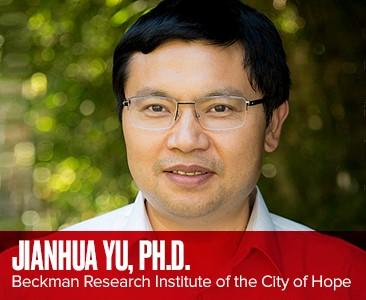Myeloma Awareness Month-Research Highlight: Changing the Landscape of Treatment for Multiple Myeloma (Part 2)
For the final installment of this series focusing on myeloma research, we will review advances in immunotherapies for myeloma. The most exciting current experimental therapies and trials in MM focus on immunotherapies: novel monospecific antibodies (such as isatuximab), bispecific antibodies (BiTEs), drugs that are linked to antibodies (ADCs) and CAR-T!
CAR-T therapy involves genetically engineering the patient’s own T-cells to recognize and kill the patient’s tumor cells. This therapy is approved for use in Acute Lymphoid Leukemia as well as certain non-Hodgkin’s lymphomas. Most of the MM CAR-T cell therapies that are under investigation are directed against the B-cell maturation antigen (BCMA) - a protein found on the surface of most myeloma cells. One of these anti-BCMA CAR-T therapies, JNJ-4528, was granted breakthrough therapy designation by the U.S. FDA for the treatment of relapsed or refractory multiple myeloma (R/R MM) in December 2019. This designation is a process designed specifically to expedite the development and review of drugs that are in clinical trials suggesting that these therapies may provide a substantial benefit over what is currently approved for the disease. JNJ-4528 achieved a 100% overall response rate in 29 patients with heavily pretreated R/R MM, according to data from the phase Ib/II CARTITUDE-1 trial reported at the 2020 ASCO Annual Meeting.
CAR T-cell therapies were a focus of the 2020 ASH meeting presentations for myeloma including an allogeneic (ALLO-715) CAR T-cell therapy targeting BCMA with an anti-CD52 monoclonal antibodies shows positive results. Several autologous CAR T-cell trials were also presented focused on ide-cel (idecabtagene vicleucel) and cilta-cel (ciltacabtagene autoleucel) CAR T-cell products with positive short-term overall response rates and lower grade CRS (cytokine release syndrome) and some neurotoxicity.
There are other experimental CAR-T therapies aiming to treat MM: they either target BCMA just like JNJ4528, or BCMA and CD19 at the same time, or designed against other targets.
LLS activated two SCOR grants in January 2020 investigating the use of CAR-T in MM: Carl June M.D. (University of Pennsylvania) and Madhav Dhodapkar MBBS (Emory University), investing a combined $7.5M into these two promising projects. LLS has other exciting myeloma CAR-T projects in its portfolio such as Alfred Garfall M.D. from the Perelman School of Medicine at UPenn, or Jianhua Yu Ph.D. (Beckman Research Institute of the City of Hope) who proposes to use CAR-T and bispecific antibodies in combination.
There are other novel experimental immunotherapies for MM currently being investigated. An alternative to CAR-T and the genetic engineering of T-cells is to select for T-cells that recognize antigens found on tumor cells. To this end, one of our SCOR grantees, Helen Heslop M.D., D.Sc. (Baylor College of Medicine) have developed a multi tumor-associated antigen approach (multi-TAA), where T-cells from the patients are exposed to peptides that are thought to be present on myeloma cells. The cells are then re-infused to the patient. Another alternative to T-cells is the development of genetically engineered immunotherapy using NK (Natural Killer) cells. NK cells are innate lymphocytes that can kill tumor cells directly. They do not cause graft versus host disease (GVHD), and can be derived from allogenic, “off-the-shelf” sources (in some cases from umbilical cords). Katy Rezvani M.D. (MD Anderson Cancer Center) is funded by a TRP-grant to develop genetically engineered immunotherapy using NK cells instead of T-cells. Other immunotherapies for MM include cancer vaccines and checkpoint inhibitors.
Bispecific antibody treatments were also highlighted at the most recent ASH meeting. Bispecifics are engineered antibodies that combine elements for multiple antigen targets. Those that target BCMA, GPRC5D and FcRH5 were presented and are showing promise but remain early in the evaluation process.
LLS is partnering with Sutro Biopharma in exciting research to develop STRO-001, their CD74-targeting antibody-drug conjugate. CD74 is a protein that is highly expressed in B-cell malignancies, such as myeloma and lymphoma. LLS is supporting Sutro with funding through the Therapy Acceleration Program for a first-in-human phase 1 study to evaluate STRO-001 in a variety of hematological malignancies. Funding will help support dose escalation in both myeloma and lymphoma cohorts, then more specific diseases may be explored during dose expansion, and include multiple myeloma, diffuse large B-cell lymphoma, mantle cell lymphoma, and indolent lymphomas, such as follicular lymphoma.
